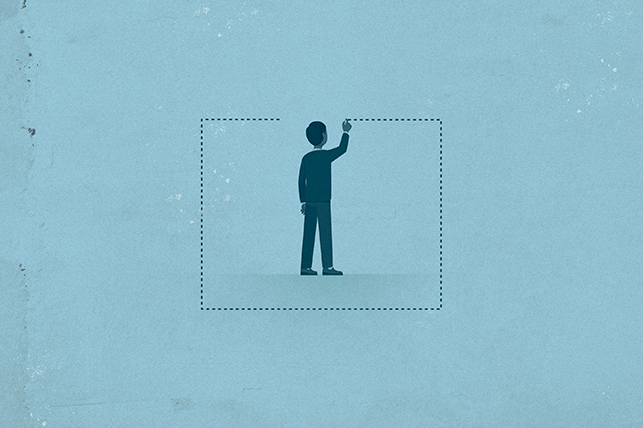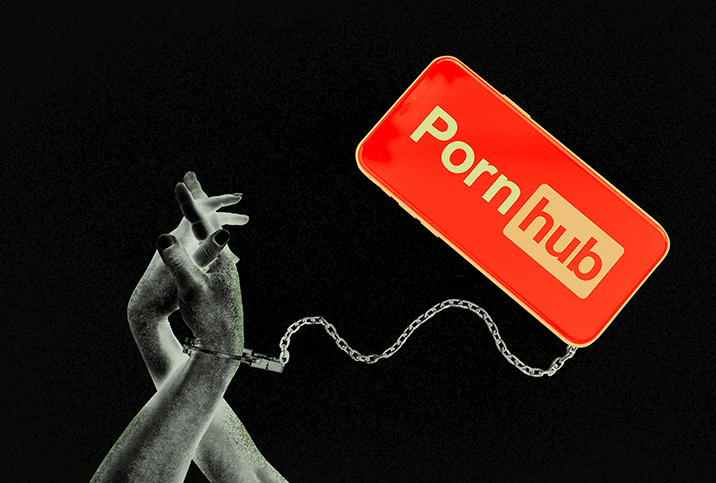Setting Boundaries for Healthy Relationships

If you feel burned out, if your schedule is filled with promises you've made to help other people, if you've been going along with someone else's agenda instead of your own, then perhaps you should consider making time for yourself before you feel resentful.
Maybe now is the time to set boundaries.
What are boundaries?
"A boundary differentiates two things from each other," explained Sarah Casper, a consent educator in Brooklyn, New York. "Typically, boundaries differentiate between what you are comfortable with and what you are not comfortable with."
Boundaries establish clear expectations about what you're willing to do with your time, energy and body, and let people know what they can expect of you and what you're comfortable with in a given situation. When relationships begin, boundaries are very important and yet they're probably the last thing on your mind as you're getting to know each other.
When you say no to your boss after they ask you to work late or answer calls in the evening, you are setting a boundary. Deciding who you want to be friends with, who you want to hug and who you're intimate with are all boundaries.
Boundaries protect everyone involved
"Most people are aware that boundaries serve to protect you, the person setting them," Nedra Glover Tawwab wrote in her book "Set Boundaries, Find Peace: A Guide to Reclaiming Yourself." "Your boundaries safeguard you from overextending yourself, help others understand what they can realistically expect of you in relationships and clearly communicate your needs."
Ultimately, boundaries protect you from feeling burned out or resentful of your family, friends and partners. But what many people don't realize about boundaries is those same boundaries that protect you also protect the people around you.
"When I don't know your limits, I don't know how to interact with you," Casper said. "I can take guesses about what you are and are not OK with, but there will always be a part of me that's not sure. When you share your boundaries, I can lean into ease and out of anxiety because now I know how to operate within your comfort zone."
When friends, family members, co-workers and sexual partners know your boundaries, they feel more comfortable with you because they don't have to guess whether the way they're interacting with you is going to make you uncomfortable.
"I feel safer when I know your boundaries because I don't want to cross your boundaries, and knowing them is the only way I can be sure to stay within them," Casper said.
How to determine your boundaries
If you rarely set boundaries and always say yes to everyone's requests, it can be difficult to define your boundaries, especially since you might not have paid attention to them in the past.
"A great place to start deciding what your boundaries are is by noticing what comes up for you during certain situations," explained Oumou Sylla, a trauma-informed, licensed therapist who practices in New York. "Ask yourself questions like what you are willing to engage in, what you are unable to tolerate, what your needs are and what brings you pleasure and satisfaction."
Here's an example: You invite a date over to cook them dinner. You have a really good time and want to see them again, but hours after dinner, they're still hanging out. You're now distracted, checking the clock over and over again, anxious and wishing they'd leave so you can get a good night's sleep for work the next morning.
Obviously, a boundary needs to be set for how late you're willing to hang out if it's a weeknight. The boundary should have been communicated to your dinner partner early in the evening. They probably weren't aware of your discomfort at the late hour and would have happily left earlier if boundaries were set in place.
Of course, there are decisions you need to make about your boundaries in the bedroom.
Sylla suggested making a Yes/No/Maybe list. Write down some sex acts, some familiar, some not so much. Next to each one, write if you are, aren't or might be willing to try it. Bear in mind you might be willing to do certain acts in specific circumstances or with certain people, and not with others.
Noticing how your choices differ depending on the situation or person involved is an important element as you begin to establish boundaries.
Communicating your boundaries
"Humans do not arrive at some point in relationships where they are aware of all of the boundaries of others," Sylla said.
While it would be nice if everyone knew your boundaries without you having to say them out loud, this isn't exactly how humans operate. In order for other people to know your boundaries, you have to explicitly communicate them—sometimes more than once.
"Subtly using body language and hoping someone will pick up on it does not effectively set a boundary," Tawwab wrote in her book. "Telling your date they can come over for dinner is not the same as telling them that you need them to leave by 9 p.m."
In this example, to set a boundary, you need to clearly communicate what you are comfortable with and what you need. Say something like, "I can go on a date Wednesday but I have to be home by 9 p.m. If you think dinner will take longer, I need to reschedule for a weekend day."
In the bedroom, apply the same principles and ensure you clearly explain what you're happy with and what you're not. For instance, you could say, "I like spanking but only on my butt. The intensity has to be low enough that it doesn't leave a mark. Can I show you how hard to spank me?"
For some people, setting a boundary can be intimidating and anxiety-provoking. Try to make setting the boundary as easy as possible. Perhaps you can do it by text or email instead of in person. Perhaps you cannot bring yourself to say no to help your friend with the event they're organizing, but you're able to tell them you can help for only three hours.
Be aware that miscommunications can occur when you set a boundary.
"Since there's no perfect way to deliver boundaries, you can never actually be sure that someone understands your boundaries," Sylla said. "This means you may have to repeat your boundaries to your friends or romantic partners.
"Instead of focusing on if your friends or partners are getting your boundaries 'right,' it's more helpful to make sure you're in relationships with people who are values-aligned and committed to communicating," she added.
Find friends and partners who are eager to listen when you tell them they crossed your boundary and committed to making adjustments when this occurs.
"This makes it so you're able to tell and retell others your boundaries—with care, compassion and clarity—as often as is necessary, desired and appropriate," Sylla said.


















